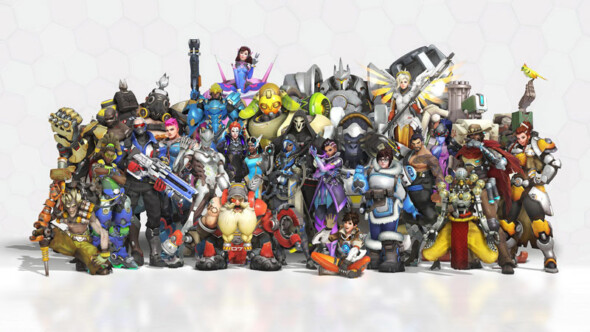Evaluating The Last Decade Of Gaming

As the clock ticks forward and we edge closer and closer to 2020 conversations will begin turning to ‘the last decade’. Twitter and Facebook are already rife with posts evaluating the state of football, music and TV from 2010 to now.
These conversations seem to be concerned mainly with how each of those industries have changed over the course of the decade. Has football really changed though? The same teams that were winning in 2010 are pretty much still winning now.
The same could be said for music and TV also. One industry that has truly changed though is gaming. Back in 2010, when Heavy Rain was the most popular console game of the year, online gaming was still in its infancy and mobile gaming’s impact was still to be felt.
In this article we take a look at how gaming has changed over the past decade by taking a close look at three major shifts in the industry.
Growth of Gambling
Back in 2010 gambling was still seen as an activity predominantly played at casinos or designated betting shops. It was almost certainly not seen as anything to do with gaming either.
However, over the course of the past ten years the gambling industry has become closely aligned to gaming. So much so that online gambling is now widely incorporated into gaming industry statistics.
In 2010 online gambling was still pretty much in its infancy. There were of course a number of online casinos, sports betting sites and bingo websites. However there were nowhere near as many as there are now.
Last year the total revenues of the British gambling industry stood at £15 billion. That figure is made up of every form of gambling imaginable, ranging from national lotteries to land-based roulette games.
The biggest contributor to that figure of £15 billion however is the online sector, which accounted for just over a third of the total revenue (£5 billion). Within the gambling industry, online is the only sector that is experiencing double digit growth year on year.
Within just a few years it is perfectly conceivable that online gambling will account for more than half of the British gambling industry’s total revenues. Almost every day there are new online bingo sites, online casinos and sports betting sites.
This means that gambling, and consequently gaming will continue to grow for the foreseeable future. The success of gambling has also blurred the lines between traditional gaming and gambling.
Many top online gambling producers are poaching top developers from the gaming world to create their online games. Vice versa, console and PC games are starting to mirror some of the technology and techniques usually employed by the online gambling industry.
Mobile Gaming
In 2010 Apple’s iPhone was still relatively new, having only been released a few years previously by Steve Jobs. The idea of ‘apps’ was still a relatively new concept to people who had grown used to the basic layout of flip phones and earlier Nokia’s.
Within a couple of years of release the iPhone had completely revolutionised the mobile industry, and as a consequence the gaming industry too. Games like Doodlejump, Angry Birds and Candy Crush took the early 2010s by storm.
Because of the fact that almost everybody had a smartphone and that mobile app games were cheap, there was a significant rise in gamers across the world. People who had traditionally being forgotten, ignored or marginalised by the gaming industry were now spending hours gaming on their phones.
Due to the relatively easy to produce nature of mobile games, there was also a huge selection for players, which in turn appealed to a larger market.
Mobile gaming has arguably had the greatest impact on the industry of any technological improvement in the past fifty years. One example of how mobile gaming has changed things is the basic split between male and female players.
Traditionally gaming was seen as a male pursuit, which was reflected in the predominantly masculine gaming titles that were released on the market. The balance of power has finally shifted, there are now more female players than male players.
Mobile gaming is the main factor behind that shift with almost 70% of mobile gamers being female. That shifting demographic leads on to the final point…
Greater Diversity
As stated above, mobile gaming opened up the market for a larger spectrum of people than ever before. Entertainment and escapism are two of the most vital elements to gaming, however, so is representation.
Browsing through the games on offer at your local store, you will still see more sports and action games than any other genres. However, there are now more gaming titles that appeal to a wider group of players.
Simulation games are growing in popularity as are themes that would be more readily identifiable with females. However the biggest shift has been in the representation of genders, races and ages in major gaming titles.
The lead character in an action game ten years ago was almost certainly a tough-talking and physically foreboding male. Thankfully that is no longer the case, we are beginning to see more and more women represented in games, and not just in a tokenistic Lara Croft style…
As gaming continues to grow and expand to newer audiences, there will be more and more diversity, which is always a good thing. Not only does added diversity appeal to more players, but it also leads to a greater depth of content for players as producers are forced to explore new themes and ideas.
Gaming has changed irrevocably over the past decade, to comprehensively cover every improvement would require a dissertation sized article. However, the three points covered above do highlight very well how gaming has changed in the past ten years.
On the whole, these changes have been beneficial and have contributed to make gaming more enjoyable for players. Hopefully the next ten year of gaming will see yet more growth, inclusion and diversity.





No Comments